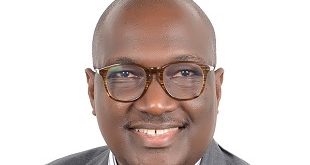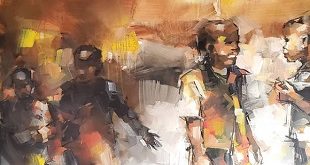
By Patrick Kagenda
Villagers where Museveni based his war say they will develop with or without his help
During its five-year fight against the government of President Milton Obote in the so-called `Luweero Triangle’, then – National Resistance Army (NRA) rebels led by Yoweri Museveni often issued `I-owe-you’ chits to individuals who offered them help.
In this way, the Luweero Bush war became an investment for the fighters and their helpers. It was an unprincipled position propagated by the NRA that led to a belief that when they captured power, everyone would recoup on their investment. The rebels took power in 1986. Some individuals might have collected on their IOUs but 29 years later, dissatisfaction remains in parts of the Luweero triangle.
Today, the area which comprises the districts of Luweero, Mityana, Kiboga, Mubende, Nakaseke, Nakasongola, Wakiso, and Kyankwazi is home to some of the poorest people in Uganda.

Statistics from the Uganda Bureau of Statistics (UBOS) show that the average number of people in these district still living below the poverty line is 20%. This is slightly lower than the national average of 24.5%. However, the poverty levels in these areas are a big concern because the national figure includes the northern and eastern regions which are the hub of poverty in Uganda. In the central region where the former Luweero Triangle districts are located, the number of people living below the poverty level is just 10.7% of the population. That means that poverty is 2.4 times higher in the districts where Museveni fought his bush war and made promises of a better life when took power.
One of the oldest people still alive today from that period is 90-year-old Erinasani Nsobya.
He lives in Kikandwa a small village of about 400 people living in about 150 homes. Located in Kikandwa parish, Semuto Sub-County in present day Nakaseke district, this area features prominently in all NRA war memoirs as Museveni’s stronghold. It was preferred by the rebels because it is just 35 miles northwest of the capital Kampala.
Today, it remains an out-of-the-way, difficult place to reach. To catch a taxi, one has to ride a boda-boda motorcycle taxi to Semuto; the nearest big town.
Most residents were minors whose parents were killed during the war and are in their late 20s and early 30s. Only few survivors are in the 40-50 year age bracket. In what is called a `trading centre’, Kikandwa has tiny retail shops, bars, and pork eateries. The main business is trading in agriculture produce and buyers have set up a number of collection stores. Of all the IOUs Museveni issued, most must have been negotiated and signed here.
Nsobya recalls the stories the NRA told to win the locals support.
“When Museveni came here,” he says in Luganda, “he, found us in hard times because if you were not a supporter of then president Milton Obote (1981-85) the basket, as it was called, would cover you. We had been coerced into singing one song, ‘Twagala Obote nga sente’ (I love Obote like I love money).”
He said they were told that Obote had said he was going to re-locate Kampala to his home area in Akokoro and that each Muganda would carry two 9×9 sand and cement blocks on the head and walk all the way to Lango to deliver the blocks.
“This hurt us a lot,” says Nsobya, “When Museveni came he was on our side of refusing to obey any word from Obote. He promised to salvage us and asked us to give him food and our children to join his fighters.”
Nsobya recalls that when the fighting between the rebels and Obote government forces intensified, Museveni relocated the villagers to the cattle corridor between Singo and Ngoma in Luweero district; an area called “mulokoola”. They returned to their homes after the war ended.
“Since our return we have moved on although with painful memories of the past and the loss of our people and our properties,” he says.
Nsobya says only a few people received compensation while the majority died without ever being compensated. “After the war, we were given blankets, iron sheets, and household items and that was it,” he says.
Happy losers
Nsobya is not bitter.
“As Baganda we feel we got our biggest treasure when Museveni returned the Kabaka as he had promised during the war. When the Kabaka is seated on the throne, as a Muganda I feel very proud. Regardless of Museveni`s failure to deliver on the other promises, we have to continue living and have to work to provide for ourselves.”
But 35-year old Mulindwa who was just one year old when the fighting started in 1981 is angry. “Our parents lost all their property and today many among the few who are still living have not been compensated apart from a few selected ones. Even the families that have been built houses, they were built when the actual beneficiaries were long dead. Many of us have lost hope in ever getting anything from this government. Even the maize mill that was given to this village has been personalised by one family, the school that was built by the people helped by government has also been personalised by another family, may be the tomato processing plant is the only thing we know is being run by General Salim Saleh at Kapeka on behalf of the tomato farmers of Nakaseke”.
“Look at the power in Mabindi that was brought five years ago, no one uses it because it is not connected. Do they want us to cut the poles like the people in Mubende did so they come connect us? Look at the Luttamaguzi road, Museveni said it is a memorial road, are memorial roads supposed to be murram or tarmac?” asks a visibly frustrated Mulindwa.
Mausoleums and memorials
The Luttamaguzi Road; a stretch of about 5.5kms that starts from the road to Kapeka and ends at the Mabindi junction, is named after one of Museveni’s supporters in the area, Edidian Luttamaguzi. He was a wealthy resident who mobilised intelligence, food, and troops for Museveni and was killed when he allegedly refused to reveal Museveni’s hideout to government forces.
A mausoleum was built in memory of the late Luttamaguzi (who saved president Museveni`s life on June 9, 1981 when then government troops UNLA raided the village to kill or capture Museveni). But that too has been turned into a family enterprise and no one goes near it without permission from Luttamaguzi’s heir, one John Kaddu. He is a government-leaning politician and one time deputy RDC of Nakaseke district.
Still, Nsobya differs from Mulindwa. He says Museveni has done well.
Nsobya says: “During my lifetime; where I have seen three Buganda Kings (Kabaka Cwa, Mutesa and now Mutebi, and all the Uganda Presidents, I have never seen the development like what is taking place today. In this village there is no one who sleeps in a grass-thatched house anymore, everyone sleeps on a sponge mattress, has a blanket, we have electricity and borehole water, we have security and peace and people are listened to when they have issues they want addressed.”
“I hear people say Museveni has brought poverty but in my lifetime I have never seen a government give free money to people. What I know is that people work to get what they want.
“In the late 1940`s when I bought my first bicycle at Shs 90, many people asked me how I had done it and many people of my age at the time later died without ever buying one. When late Luttamaguzi bought his Zephyr Zodiac at Shs4,000 in the 1950s we all went to congratulate him and ask how he had done it. Of course we knew he was a rich man who had money and was hard working. People should stop the wishful thinking but work hard.”
Fred Kavuma, a secretary in the Kikandwa Local Council says people should not keep focusing on the past.
“There are things government has done and failed on others. The most urgent thing government needs to do is help people process their farm produce to add value.”
He says this will stop the exploitation of the farmer at the hands of traders and middle men.
“Government needs to fix commodity prices to stop the exploitation, look at the Mulwana Milk factory where they buy our milk at Shs550 a litre yet a litre of packed milk is sold at over Shs 2000. This is what I mean by helping us add value onto our products.”
“Government also needs to re-focus its educational policies and build us tertiary institutions than have all these UPE schools which have no economic viability,” he says.
According to him, a UPE school in every village is a misallocation of resources because it is useless having only 100 pupils in an entire school. He says it would make better economic sense if you had a UPE school for every four villages and a tertiary institute also for the same coverage.
“As people who live in the villages we need to produce job creators unlike now when kids are dropping out in S.2 and very few ever completing S.4 yet these could have learnt trades like tailoring, mechanics, and other trades that don’t require too much learning,” Kavuma says.
Kavuma says regardless of the unfulfilled promises made by President Museveni the village today is better off. He says the health facility always has drugs although it needs more buildings to house more health services and medical staff.
“We have borehole water every 200 metres, our village is peaceful meaning security is efficient, people are working hard and their standard of living is improving by the day.
“We don’t have any grass thatched houses on this village and all homes are brick and mortar as you can see, people are involved in improved agriculture and are moving away from traditional farming to commercial farming growing crops like tomatoes, water melon, passion fruit, greens e.t.c.
“Almost every home has a motorcycle for transport unlike in the past when bicycles were the order of the day. To me what is happening in this village is actual development,” he says.
“As Kikandwa we are developing on our own. With time our house hold incomes will also improve and life will go on,” he says, “You can’t keep crying over spilt milk”.
 The Independent Uganda: You get the Truth we Pay the Price
The Independent Uganda: You get the Truth we Pay the Price



